#literally it would be better to only have one Catholic school in the whole county that is upright and Orthodox than the entire school board
Text
if a teacher at a Catholic school is a poor role model of the moral life in a public way, they should be fired, simple as. if a teacher at a Catholic school cannot accurately describe and vocally affirm the teachings of the Catholic Church when asked, they should be fired, simple as. if a teacher at a Catholic school is known publically to be a non-practicing Catholic, they should be fired, simple as. Close schools if there aren't enough staff. I don't care. I'm sick of our Catholic schools disobeying the Bishop, the Church at large and pushing relativistic nonsense onto students as Catholicism.
#TAKE AWAY OUR PUBLIC FUNDING IT IS THE WORST THING TO HAVE HAPPENED TO OUR CATHOLIC SCHOOLS#we are public schools with crucifixes on the walls#the teachers are ministers of the faith and the Church has the right to select her ministers#literally it would be better to only have one Catholic school in the whole county that is upright and Orthodox than the entire school board#that we have now#if you want to teach at a Catholic school THAT badly be well catechized vocally support the Church and keep your disagreements and or#deviations private
232 notes
·
View notes
Text
Begin Again - Sonny Carisi
A/N: It took me forever to put this into words and I’m still not sure about the ending but I literally couldn’t think of anything else to say.
///
But on a Wednesday in a cafe, I watched it begin again. - Begin Again, Taylor Swift
Divorces were messy business, as your father had told you over the phone multiple times while also suggesting that you avoid said ‘messy business’ and just stay married. Stay married to a man who emotionally and mentally abused you every chance he was given since somewhere around the first two months of dating. Stay married to a man who cheated on you repeatedly. Stay married because that was the only thing you had ever done right in your whole sorry existence.
Your therapist, when you first moved to New York and after the trouble of finding a new doctor and getting new referrals and trying a few less than reputable places first, told you that you married your mother.
“Probably.” You’d agreed.
For even longer than you could remember subjecting yourself to marriage you had been forced to endure the onslaught of your mother’s never ending negative opinions about everything in your life. You cut your hair too short, you smoked cigarettes, you spent weekends at friends houses to avoid her wrath, and you fell right into every word your now ex-husband said because you wanted someone to tell you they loved you.
It was through frustration, after filing the first PFA and having it denied by the judge in the county of the small town where you lived, that you ultimately signed up for classes at the community college. And it was those classes that got you to NYC, a place you’d really only ever dreamed of, always intimated by the city.
“It’s just...I don’t know how to describe it.” You explained, waving the hand that wasn’t holding a cup of coffee as you walked through the park.
It was hard to believe, even for you, but the city had offered more than independence, freedom, and opportunity. In the final semester of your last year before the bar exam the city had given you another gift, in the form of one Dominick Carisi Jr. Detective, hopeful future lawyer, devout catholic, family man, and arguably the nicest person you had ever encountered. Three dates in and you were hooked.
“It’s a little intimidatin’.” And that accent, an onslaught of 30-some years living in Staten Island had gifted your ears with the pleasure of Carisi’s accent. It was something you never thought you’d appreciate but after spending days listening to him, either answering a question in one of your classes or talking about his nieces during a date, you were sure that voice was heaven-sent. A rather embarrassing borderline kink that you had so far withheld though you suspected he knew, given the smirk every time you zoned out when he was talking.
“You’re only saying that to make me feel better.” You replied, nudging him and smiling. Smiling was unavoidable when you were with Sonny. The first time he’d asked you out had been after a particularly grueling day and a test you had been cramming for.
You had been towards the back, packing your bag to go home, when Sonny had stopped at your desk, lingering until you gave him your attention. He was nice looking, you had always thought so. The first week of class you’d walked in to find him in a seat toward the front, suit pants and vest on with a white button-down shirt and tie. You thought he looked a little too nice to be taking night classes but maybe he had some sort of important job during the day. You always came straight from work at the legal firm three blocks away, sporting an endless wardrobe of pencil skirts and blouses. And you thought, possibly, that it was the suits that were so alluring about him. But then he’d shown up on a test day with jeans and a hoodie and his hair not so perfectly gelled and you’d still swooned so you knew it wasn’t just the suit.
The day he asked you on that first date he was in his suit again, complete with a jacket and you were sure you’d never been more attracted to a man’s legs before. The gray pants were really something though.
“Did you need something?” You asked, then frowned at the harshness of you own tone. Lack of sleep and stress over your divorce were really getting to you. “Sorry, I didn’t mean it like that.”
“No sweat.” He smiled like it really was no big deal that you’d come off sounding annoyed by his presence. You weren’t. Surprised he was talking to you sure, but annoyed? Definitely not. “I was just wondering if you’d want to grab coffee sometime?”
And really you should say no because there is a whole house of skeletons that this poor guy has no idea exist but he looks so sweet and whether he is or not you could use a nice guy. So you nod your head, deciding to go against your better judgement or your worst case scenario judgement. “Yeah, yeah, of course. When did you have in mind?”
The first date was at a Starbucks and you explained your love of pumpkin spice lattes, no matter how ‘basic’ they made you. “It’s stupid I know, but I swear it’s not all hype. It really is a good drink.”
“I’m not arguing doll, my sister Bella gets ‘em all the time.” He mentioned as the line moved up. He ordered two venti pumpkin spice lattes and two pumpkin scones, encouraging your deep love of autumn flavors and, despite your protest, he paid. “Got the app.” He shrugged like the high-priced goods were no big deal as he held his phone out for the girl behind the counter to scan.
“Well thanks.” You replied, moving down the counter with him. There were things you wanted to say. You thought about telling him how your ex-husband never would’ve paid for coffee, just rolled his eyes that you wanted to buy some when there was ‘perfectly good coffee at home’. He would’ve made fun of your right there in the Starbucks with everyone around for wanting a pumpkin spice latte. But instead you listened to Sonny telling you how he brought his nieces here sometimes after mass as a treat.
Sonny liked to talk and you liked to listen. It kept you from saying stupid things that didn’t matter about your ex-husband and your life prior to New York. You weren’t keeping things from him, just enjoying the newness of the relationship. The only good advice your mother had ever given you was telling you that the way a person acts in the beginning of the relationship is their best behavior. So whatever’s bad will only get worse. As far as your ex-boyfriend was concerned that was completely true. With Sonny you couldn’t imagine it getting worse.
Five weeks into dating each other Sonny breached the idea of introducing you to his family. “My ma was wondering if ya wanted to come to mass with us on Sunday?” He asked. Dinners had shifted from rarely being at one another’s apartments to always being at one another’s apartments. Sonny’s Italian food was to die for and you had some pretty amazing cooking skills yourself.
“Alright.” You thought you’d be more nervous. That meeting Mr. and Mrs. Carisi would be the most intimidating thing in the world but the more time you spent with Sonny the more you wanted to know everything about him. You were actually eager to meet his family.
“Yeah?” Sonny asked, almost disbelieving.
“Yeah, I’d love to meet your family.”
You weren’t the only one who was excited about meeting his family. Sonny hadn’t brought someone home to meet his mom and dad since he was in high school. He just couldn’t seem to mesh with anyone. There were plenty of first dates but they never went further than that. Either his job was too demanding or he was too overbearing or he thought too far into the future. However, it was Sonny had spent a significant portion of his dating years being told that he was too much by the people he went out with. And he always felt like that, a nag in the back of his brain that said he was either too much or he wasn’t enough.
But you didn’t make him feel that way. He’d worried himself over asking you out for weeks until Rollins finally told him she would find him a new partner if he didn’t ask you. So, he did, shaking and second guessing himself and thinking that the beautiful girl who sat in the back of his class was never going to want to go out with him but it was worth a shot. And you’d smiled so bright when you realized he was inviting you on a date. You accepted and somehow he was talking about mass on Sunday with his family.
“Are we going anywhere after mass?” You asked, cleaning the dishes from dinner. The record player you had by the couch playing softly in the background. “Like should I bring something.”
“Nah, ma’s gonna do a big dinner.” Sonny replied, grabbing your hand as you walked back to the small kitchen table to grab the rest of the plates. He pulled you down on his lap and wrapped his arms around your waist.
“I still feel like I should bring something. It’s your parents,” you explain, “I mean, it’s your parents, I wanna make a good impression.”
“They’ll love ya, trust me.” He needed no convincing words or reassurances he knew his parents would love you because he loved you and because he’d told them about you enough times that they felt like they already knew you.
“What about that apple cake I made for Amanda’s birthday?” You suggested.
You’d met the squad by accident on a date with Sonny but now it felt like you’d always known them. The life you had in New York had changed who you were as a person. It had made you more confident, more outgoing, happier. The shell you had built around yourself to protect your sanity from your family and your ex-husband had been chipped away at by Sonny and by your own independence.
“I’ll ask ma,” He replied, “I do like that apple cake.”
The song on the record player ended and the quiet scrape of the needle against the vinyl had you getting up to flip it to the other side. You heard the sound of Sonny’s chair move back as he no doubt started cleaning the rest of the dinner plates. It was nice.
-
This is the thing, I don’t know how it is.
#sonny carisi imagine#sonny carisi fanfiction#sonny carisi fanfic#dominick sonny carisi imagine#dominick sonny carisi fanfiction#sonny carisi x reader#law and order: svu fanfiction#law and order: svu fanfic#law and order: svu imagine#collecting stories imagine#cs discography series
148 notes
·
View notes
Note
hi if it's not a too personal question to ask how did you come to be interested in history/antiquity/alexander..? I mean did you always like it as a child? or how did it start?
It’s not too personal, and in fact, I LIKE to tell this story, as I’m the definition of coming in the back door, which might encourage others.
Understand, I’m a chick from the other side of the tracks. My generation was the first to get a college education, and I’m among the few to go on to grad school, especially not professional *(e.g., law or med school). I was lower middle-class growing up. My father is from one of the two poorest families in Jackson County, S. Illinois before (and after) WWII. My mother was better off, her father a successful farmer and carpenter, but the Brouillettes had been Catholic (even if he wasn’t), and (worse) they had Indian blood.
There was no silver spoon in my mouth. I had better: wonderful parents who cheer-leaded me all the way. So if you disbelieve a father as great as Amyntor could exist? That’s MY parents. Amyntor-Berenikē are real, and their names were Ed and Idalee. Rise is dedicated to my father. Some of us get that lucky, and I’m HUGELY aware of my fortune, especially as I aged and realized my fellows didn’t have parents like mine. So Hephaistion’s desire to share his father with Alexandros? That was me. All my friends came to my house to visit my mother.
My love of history owes entirely to HER. She loved history, and understood it was about the stories of people. But my elementary and junior high history teachers made it about “kings-n-things” with lots of dates, etc.
So I HATED history.
I hated it all through regular school, then my tenure at UF, where (despite being a humanities major) I AVOIDED all history classes except one, an elective on the history of the Early Church. I think it’s pretty much a crime that a humanities major anywhere can graduate without a history class. WTF?
Yet it’s all the fault of poorly taught history. Plus, yes, younger students are less inclined to understand why it matters. Not all, but a substantial portion regularly return surveys saying history doesn’t matter because it’s the past, not the future.
Back to my clever mother. Instead of teaching me history, she told me about my family: the story of my ancestors, my people, including my tribe (Miami-Peoria). I was routinely hauled around to cemeteries as a kid, shown where my people were buried, and then told stories about them. Respect for Elders and the ancestors is a native thing. Yet I became fascinated, constructed family trees, and tried to trace back their stories, as most of my mother’s family were French who came in the 1600s/early 1700s, or Native Americans. My father’s family were more recent immigrants, but it all made a wonderful puzzle.
The story of me.
That’s history. The story of us, more broadly.
And so my clever, sneaky mother taught me to love history by coming in the back door.
Yet as a teen and undergrad, my interest in other cultures were largely Celtic and Scandinavian. I was introduced to J.R.R. Tolkien as a teen and remain a HUGE fan. My “home” fiction genre, insofar as I have one, is SFF (science fiction and fantasy), where a number of my friends publish. So I resisted the whole “Classical” field until quite late. Latin was the most popular language at my HS (Lakeland Dreadnoughts), and had the most active student group… so of course I refused to join! Never was a follower. I took German instead. In college, I took RUSSIAN, just to be different.
My undergrad degree was a BA in English, with a concentration in creative writing and a minor in acting. My M.A. was in theology and early church history. While at the Candler School of Theology, Emory, I kept hearing about this dude, “Alexander the Great.” I had NO idea who that was. (That’s how bad my previous history education had been.) Yet as he seemed so pivotal in cultural transfer, east to west and west to east, I wandered over to the Emory library to check out a couple of bios.
By chance, they were N.G.L. Hammond’s King, Commander and Statesman, and Peter Green’s (original, Thames-on-Hudson, later re-released by U. Cal Press) Alexander of Macedon.
I literally couldn’t have picked two more different bio’s if I’d tried.
AND HE FASCINATED ME. Who was this KID, who conquered most of his known world by 32, but generated such different evaluations, positive to negative?
Like Alexander, I’m a bit inclined to … obsess?
So I kept reading, and reading, and reading (articles, not just books), and then got into Macedonia (which then in the 1980s, was mostly articles).
By the early 1990s, I’d decided I wanted to study him professionally, not just to write a novel about him, so on the urging of Judy Tarr, I called Gene Borza at Penn State. He was my #1 choice to study with (in the US) as I’d admired his honesty to reply to those who disagreed with him, not just ignore them. So Gene asked me what I’d read, and I started reciting my list, until he said, “Stop, stop! You’ve already read more than most of my current PhD students!” He encouraged me to apply.
Ergo, if my BA was in English, and my MA in Theological studies, and I’d originally intended to go on to a PhD in the latter, I sent off ONE application—to Penn State—for history.
Guess which one offered funding (e.g., a graduate assistantship).
I wound up at Penn State, studying Macedonian history with “Aristotle” (e.g, Gene Borza, whose resemblance to the philosopher is a wee bit uncanny). It was, I think, the best choice I could have made. I remain Gene’s “academic daughter,” and Book 1, Becoming, is dedicated to him due to Aristotle’s prominence, while book 2 is dedicated to my father, Ed Reames, because he’s the model for Amyntor.
So yes…there IS a backdoor for those of us determined enough. But be aware, the handicap never goes away. I face it every single day. My Latin and Greek wasn’t “good enough,” and I don’t have the extensive reading in Classics that someone with a BA in Classics would have. But I DO bring my diverse previous experience. I have a background in bereavement counselling and ER on-call duty that allows me to look at Alexander’s mourning and such events as the Philotas Affair with experience most of my colleagues (however good their Greek and Latin) don’t have.
So be prepared to justify your existence to your colleagues who had Latin in high school and pursued a BA in Classics or ancient history. Don’t apologize.
And those of you who DO have the above, remember, there are a couple of us out there, scrappy and “previously untrained” who loved the field enough to work our asses off to get a degree, and eventually, a job. So unlike some of my colleagues at Penn State, don’t snort and look down on your unusual fellows. Help them out.
I’ll also note that of the students I entered with? Only two of us received the PhD. Tim Howe, my academic brother who came with better prep, teaches today at St. Olaf’s in Minnesota. But dammit, I fought my way through. And I finished, and I’m at a uni that, with my colleagues, created an Ancient Mediterranean Studies Program at the BA/BS and MA level. I’m damn proud of that.
The field has changed since I applied to grad school in 1991, I won’t lie. Tenure-track jobs in the US, especially in ancient history and Classics, have turned into unicorns. Other countries are different. But if you are determined enough, and damn stubborn enough, you might be able to carve your own path, as long as you keep an eye on the current state of the field. I won’t lie to anybody about how few ancient history and Classics jobs are out there on H-Net these days. BUT don’t let the afternoon-tea set make you feel less than them: “imposter’s syndrome” for pursuing a PhD in ancient history or Classics. Some of those Classics blue-bloods won’t get a job, at the end of the day.
I am THE definition of an “imposter’s syndrome” faculty member who succeeded. And I don’t give a good goddamn what anybody thinks of me. I excel at what I do, and I’m proud of it.
#classics#Classics in the back door#ancient history#stubborn ancient historians#realities of the field#asks#Jeanne Reames#ancient Macedonia#degrees in history#advanced degrees in history
9 notes
·
View notes
Text
Welcome to Dugi otok
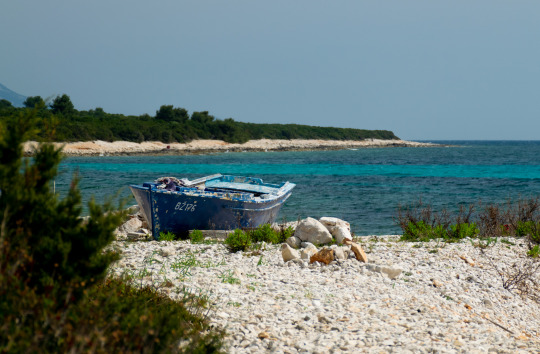
It's been my wish for quiet some time to visit Dugi otok (Long Island), the long and the most distant of the Croatian islands located in the center of Croatian part of the Adriatic sea. Actually, I visited one part of it – the Nature Park Telašćica, when I was a kid more than 15 years ago…but never other places and with the new purpose. However, my wish had been granted surpassing all the expectation I had about this trip.
The main reason why I wanted to travel there was to find and record the locals who speak the local idioms. For those of you who've been following me for the last couple of years and especially my YouTube channel you know that this was a super exciting trip for me. These native speakers represent a national and cultural treasure in terms of lingusitic heritage and a history of the litoral and maritime people living here for centuries, with some of them being isolated or with little touch to the land (terraferma). Thus the excitement to hear the living past and a nice blend of the Croatian Slavic culture and the Mediterranean Latin influence.
Apart from finding the native speakers I was excited to find out more about being and living as an islander. So I had to chance to record, hear and take photos of stories and experiences of the local people from several villages including both youth and seniors.
How it all started
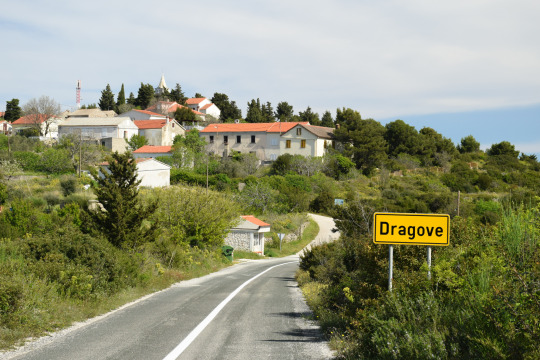
I was super lucky to be given the opportunity to stay for four days on the island and meet many people whose help I never expected. I got the accommodation for free at the local monastery of St Michael in Zaglav which was thrilling enough and especially valuable since they allowed me to stay during the festive days around Easter. As soon as I got the confirmation that it's not a hallutination but a reality I looked for help among friends and acquaintaes who could aide me in getting to know the island and the locals. Without them this trip would have looked totally different as I knew practically nobody there. In the end I made lots of friends and had plenty of fun while doing my mission. I spent literally days and hourse right before the trip to get the additional camera equipment, gather as much as valuable information about the locals as possible, creating my own map of the potential people for the intervju and preparing the daily routes.
But before we dive into the adventures here's a some info about the island.
About Dugi otok
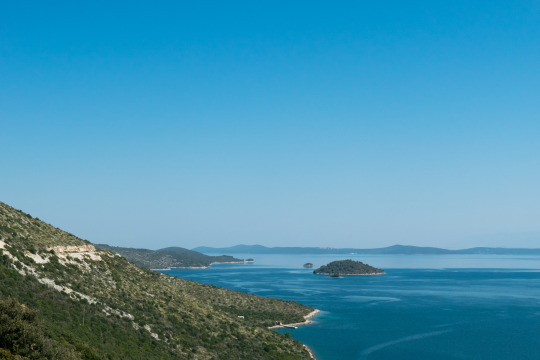
What do you need to know about this paradise? Dugi otok is the largest of the North-Dalmatian islands situated in the central part of the Croatian Adriatic. Iti s also the last island before the open sea and Italy on the other side of the Adriatic bay. Just like the majoritiy of our islands it has many hills and small bays with its highest peak of Vela Straža at 338m. The island is around 45 km long (hence the name) but at some points its width ranges between 1 and 4 km. This contrast was especially visible when I was driving a car from the south and at one point I stopped and looked to my right – there you see the islands towards Zadar and Velebit mountain. Then you turn to the left and see the nothing except for the blue sky, horizon and the deep blue Adriatic sea. However, during the crystal day and with a good eye sight one can see the eastern Italian coast, more precisely – the Apenine mountains. After all, Italy is less than 200 km away across the sea.
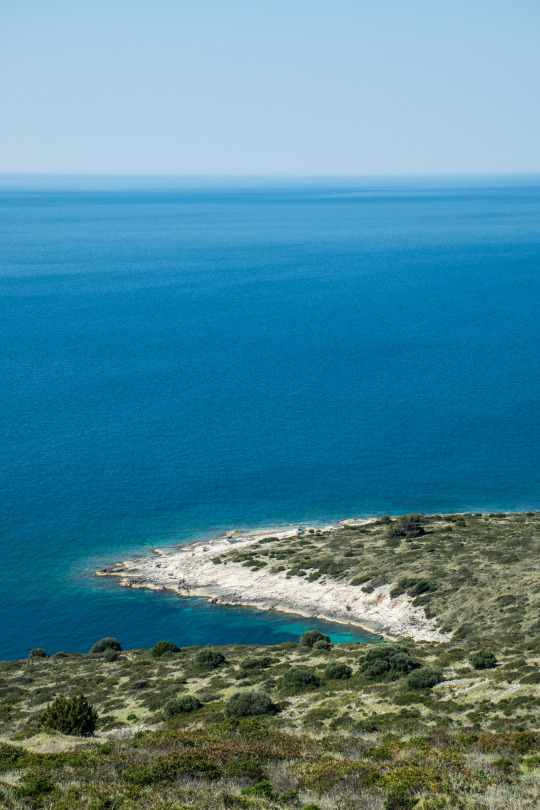
Its western coastline bordering the open sea characterize the sharp contrasts: the southern part around the Nature Park Telašćica is surrounded with impressive cliffs that go up to 80m in height. Telašćica is one of the most beautiful place sin Zadar county and frequently visited by numerous tourists each year.
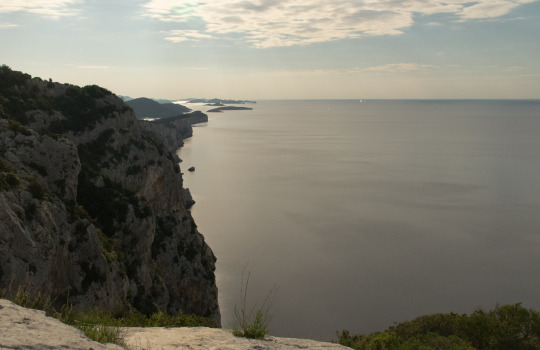
On contrary, on the other side of the island you can find more peaceful bays. The two most notable beaches are Sakarun and Veli Žal where Sakarun is the most famous one. However, last years due to growing number of visitors and greediness it no longer looks and is as it was 10 years ago. I also never went there but visited Veli Žal instead. All in all, the nature on this island is incredible and as the locals say – you hardly notice any seasonal change. It always looks as if the time had stopped between spring and early autumn. Always green and no leafs falling. In terms of nature this island will be a perfect place to escape the reality and the stress of the modern lifestyle spent in larger urban areas. Clean sea, peaceful nature and the welcoming locals.
People, customs and history
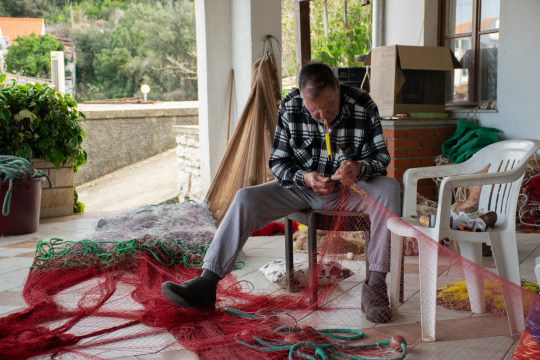
Speaking of locals the island has a population of roughly 1500 inhabitants spread in around 12 local villages. The largest of them is Sali in the southeastern part of Dugi otok with the population of around 800. On contrary, places such as Dragove or Veli Rat in the north have between 40-70 inhabitants statistically. However, accoridng to the stories, there's far less people who actually live for the whole year. The sad truth and reality is that these places will become ghost towns within 10-20 years as the majority of these locals are seniors over 80 years old. The thing is – apart from them most of the visitors are so called „weekenders“ – the islanders who live on the land (e.g. in Zadar) who come there over the weekend…or the other part that's present during the summer are the diaspora. These are the people whose parents, grandparents or further ancestors emmigrated to the United States, Southern America or Australia and New Zealand at the beginning of the 20th century or around the years of the WW2 in search for better opportunities and life across the sea. There are even some remains left of the WW2 bunkers and ship tunnels that I am going to describe you later (I couldn't resists visiting some of them). And even today one can find near the central part of the island a restricted zone which belongs to the military whose base is on top of the hill. It's said it used to watch over the potential threat that comes from the south or across the Adriatic sea.
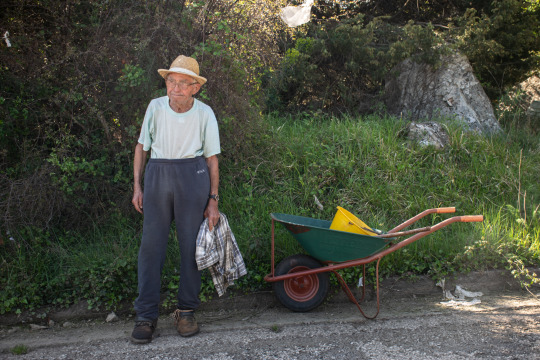
The population of the island was thus much larger, actually surprisingly larger. However, the Great War in 1918 and the Second World War had taken the toll with great consequences. Many of the islanders died or were killed during those time, especially the young people, men, who were meant to start new families. Those who survived either stayed or moved to new places. Some places used to have a lot of children attending the schools. Now some say it's „a success“ when they managed to gather up to 10 children of the elementary school in total. And they come from different villages.
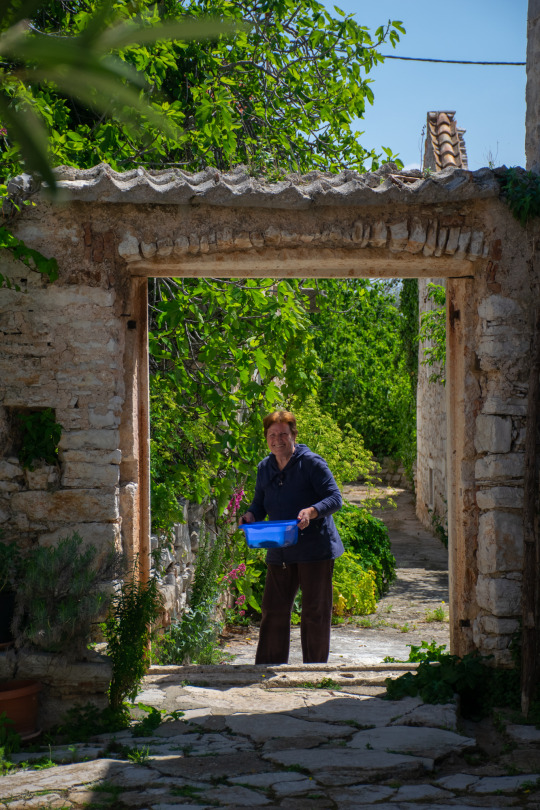
Being on the island many of the locals have traditionally been turned towards the sea and what it offers. It's not unusal to find people who have spent their lives sailing around the world. Some have been fishermen. Some are into agricultulre and what it offers. Unlike us who live on the mainland here you can't have super large fields but smaller ones where you take care of goods and cultures such as figs, oranges, lemomns, tomatoes, potatoes, salad and olives. In Sali there is a fish factory which provides employment for good amount of the locals. There is another important factor in the lives of the islanders and that is the Church and religion. It's not unusual to find many of them to be (kinda) devoted Catholics who go to the church every Sunday. After all, as some explained me, it's also a social thing or event, when you think about it. And living there for centuries, relatively isolated and surrounded by nature and vast sea surface, one shouldn't be surprised to see faith and religion rooted deeply in the locals. And being an islander does not mean living an easy life, as you are going to find out. Speaking of religion there is this Franciscan monastery of St Michael in Zaglav with a church that was built in mid-15th century. That's the place I stayed at.
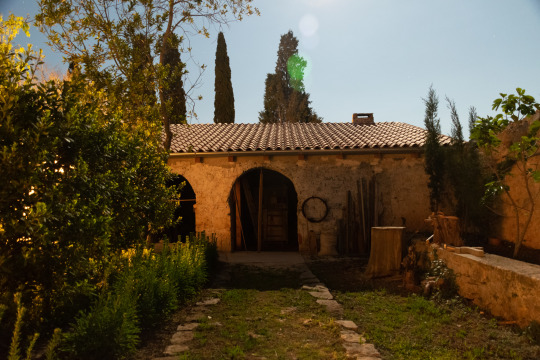
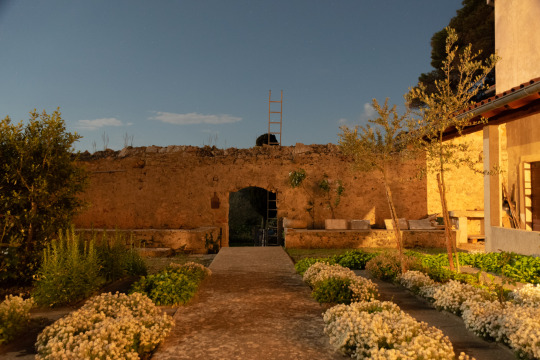
The places on the island are connected with one main road from which you have amazing views over the surrounding islands and area. The island has also got quiet good connection with the mainland via trajects and speedboats (catamaran). There are four catamaran lines that go daily from Zadar to Dugi otok. If you are planning a trip on Dugi otok by car you will arrive by traject to Brbinj in the northern part of the island. The same goes if you want to leave the island by car. Speaking of cars the only gas station on the whole island is located in Zaglav in the south. That's also the place I arrived to and stayed at for four days.
What else to add? During the summer season many are some festivals related to religious events, local music and traditional kitchen. Those who prefer to spend their time actively they can go exploring the area, follow many hiking roads, visit the caves, Park Telašćica or National Park Kornati. If you are more into sports then I suggest finding some diving locations or courses, try running, trekking, biking, trail, sailing etc. At the northernmost point of the island at Veli Rat there is another landmark of Dugi otok - the lighthouse of Veli Rat.
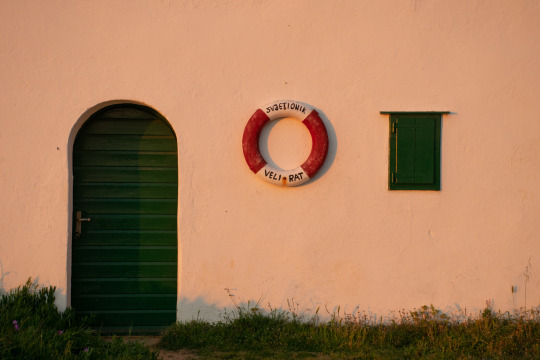
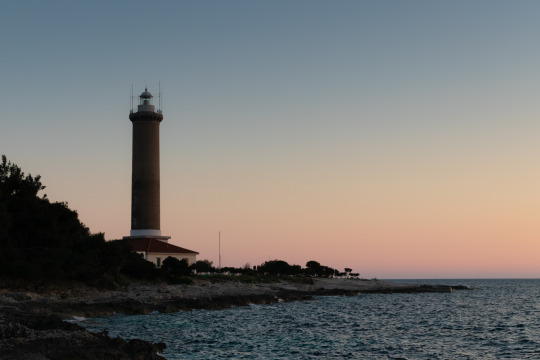
I forgot to mention some of the older history of the island. Here are a few interesting things to know. The island was already inhabited with settlers in the early ages in paleolithic and mesolythic. Several years ago scients discovered the human skelleton that date back to 11 000 years BC. This discovered male Dalmatian known as „Šime“ died unnatural death at the peak of his retirement age of 40.
One can find the remains of the settlements and stuff of the ancient Illryians. There are also several caves on the island and around Telašćica park one can find tomb hills dating back to Iron age 800-400 BC. The last thing I'd add here is the Grpašćak Fortress on the western coast above the cliffs of Telašćica. It was built in 1911 by the Austro Hungarian Monarchy which served as a military patrol base. I came close by my first evening on the island but more about it in the next post..
Time for a break
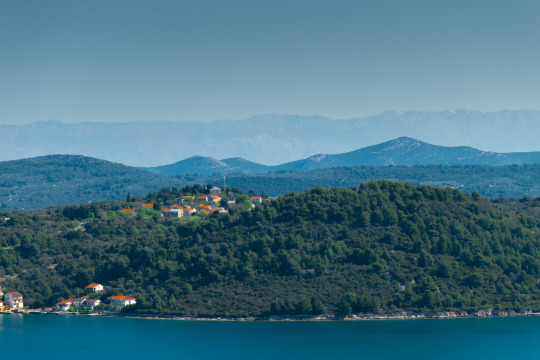
Alright! I hope you have some idea about Dugi otok. More in details on specific topis as we surf through the days.
Grgo
#dugi otok#dugiotok#croatia#dalmatia#travelling#long island croatia#adriatic sea#local people croatia#locals on islands#potepuh#zaglav#sali#božava#veli rat#lighthouse#nature#landscape#dragove#savar#telašćica#telascica#cliffs#adriaticsea
4 notes
·
View notes
Text
Resurrection - A Response to “Ireland: An Obituary” by John Waters
In his article for First Things, which describes itself as “America’s most influential journal for religion and public life,” John Waters casts the vote to repeal the 8th amendment to the Irish constitution on May 25th as the death of his country. On that day, he writes, “history seemed to have gone into reverse: the Resurrection behind, Calvary in front. On Friday, the Irish people climbed Calvary backwards, in the name of progress.” I knew from that first line that the Ireland he knows and the Ireland I know must be two very different places. Like most Irish women at home and abroad, I went to sleep the night of May 25th, when exit polls showed that the referendum had passed with 68% of the vote, scarcely allowing myself to believe that I would wake up in a world where Irish women were free. The next morning, though I may have been curled up under my blankets half a world a way in Canada, I felt as though I was with the thousands of women at Dublin Castle who were weeping in joy and relief as the results were made official, alternating between chants of “Yes!” and “Savita,” the name of an Indian immigrant who died of septic shock as a complication of miscarriage in 2012, after being denied an abortion five days earlier and being told “this is a Catholic country,” before breaking into a tearful chorus of Amhran na bhFiann, the national anthem. I spent the next forty-eight hours crying off and on, and I’d be lying if I said the teary spells have stopped completely, almost five days later.
Before I go on, I want to make my opinion on this matter perfectly clear. I am Catholic. Abortion is not an easy topic for me, and I do believe that on some level, it involves the taking of a life. In Canada, the country that sectarian oppression led my family to before I was born, abortion is legal for any reason up to birth. I do not agree with that at all. But in Ireland, the 8th amendment created the opposite extreme- in making the life of the mother and the life of the fetus equal in all respects, women could not even have a termination for medical reasons unless her death was imminent. I say that because a potentially life-threatening situation, such as a lengthy miscarriage, which can lead to sepsis, was not enough to merit a termination- you had to actually be experiencing sepsis in order to be allowed an abortion. This is what killed Savita Halappanavar, the catalyst for this referendum. Personally, I believe that abortion should be allowed if the pregnancy poses risk to the health, including mental health, of the mother; if the baby is diagnosed with a fatal foetal abnormality such as anencephaly; and in cases of rape and incest. However, because I do not believe that anyone should be forced to disclose that they have been a victim of rape or incest in order to access health care, I believe that there should be a period in the first trimester during which abortion can be accessed upon request.
The 8th amendment, however, went beyond prohibiting abortion in all cases. The law undermined the agency of women carrying wanted pregnancies to term, as it prevented women from accessing any sort of health care that may hurt the baby. I read one story of a women who was denied chemotherapy and ultimately died, only for her baby to die three days later. In short, the 8th amendment was a draconian law that shames any nation that considers itself modern. With that in mind, I invite you to take my hand and dive into dissecting Waters’ article. I decided to write this response on a whim at one in the morning, because a lot of things have made me really angry in the last few days, but nothing as much as this article. Let me tell you why.
Waters opens with “If you would like to visit a place where the symptoms of the sickness of our time are found near their furthest limits, come to Ireland. Here you will see a civilization in freefall, seeking with every breath to deny the existence of a higher authority, a people that has now sentenced itself not to look upon the Cross of Christ lest it be haunted by His rage and sorrow.” From the get-go, he is casting Ireland as some sort of hellish wasteland of sin more akin to Las Vegas than to a country where the Angelus is still broadcast on national TV and every single person I’ve ever met went to a Catholic school. As the western world goes, Ireland is behind the times, and certainly one of the most pious countries among its peers. I’m not saying Ireland has the same levels of religiosity as it did even 50 years ago, but 85% of its citizens identify as Catholic, and the handprint of the Church is all over its laws. In 2009, the Dáil (Parliament) passed a law implementing a €25,000 fine for blasphemy, and children must be baptized Catholic to be admitted into school- that’s the kind of fundamentalism we use to justify bombing Muslim countries. So is Ireland shaking off some of the influence of the Church? Absolutely, and thank God for that. But is it “a civilization in freefall, seeking with every breath to deny the existence of a higher authority?” Absolutely not. Could not be farther from it.
A later paragraph begins with “For the first time in history, a nation has voted to strip the right to life from the unborn.” Is this true? Technically, but only because Ireland is the only country (to my knowledge) to ever have had the legal equality of the life of the mother and her unborn child enshrined in their constitution. That in and of itself ought to tell you something about Irish society- that abortion laws had to be changed by referendum rather than by legislation because an absolute ban was literally enshrined in the constitution.
He continues: “The tenor of the contest has been so nauseating that the deepest parts of my psyche had begun to anticipate this outcome. It was little things: the frivolity of the Yes side: “Run for Repeal”; “Spinning for Repeal”; “Walk your Dog for Repeal”; “Farmers for Yes”; “Grandparents for Repeal,” which ought to have been “Grandparents for Not Having Grandchildren.” This, like the same-sex marriage referendum in 2015, was a carnival referendum: Yessers chanting for Repeal, drinking to Repeal, grinning for the cameras as they went door-to-door on the canvass of death.” Apparently, Waters has a problem with the fact that Irish people live normal lives, and don’t just spend their hours alternatively praying the rosary and making babies, as borderline-Orientalist caricatures from Americans would have you believe. What hurts me the most about this - this denial of normalcy, of modernity, the eschewing of activities such as spin class or walking your dog as something somehow out of reach of the constantly-praying people of the Emerald Isle - is that it comes from an Irishman. Growing up in Canada, I’ve grown used to foreigners, especially Catholics, having this mythologized idea of Irish society, as though time stopped for us in 1849. And I’ve grown used to other Catholics going into hysterics when we step out of line from this fantasy. But seeing someone who describes Ireland as the only home he’s ever known perpetuating the infantilizing and, frankly, almost racist idea that Irish people aren’t, for lack of a better word, normal- I can’t lie, it hurt.
This, for me, has been the crux of the issue as I’ve debated the referendum results with non-Irish Catholics, or (even worse) Catholics of some vague and distant Irish descent, who maybe had a great-great-great grandparent come over on the coffin ships during the Great Hunger. There are 500,000 people of Irish descent in Canada, which makes up 15% of our population; likewise, in the US there are 33 million people who claim Irish descent, which makes up 10.5% of their population and dwarfs the all-island population of Ireland, which is about 6 million. Most of these people, however, are descendants of people who came during the Great Hunger or shortly thereafter. First generation Irish-Canadians (or Irish-Americans) like myself are extremely rare. Because of this, though Irish culture is very strong and certainly privileged in North America, there are few people here with an actual connection to contemporary Ireland. For this reason, the image of Ireland that’s held by “Irish” Catholics here is not realistic.
Not only is Ireland imagined as a place where having 10 children is considered the average and no one has heard of birth control, but they think we actually like it that way. Catholics in North America treat Ireland as a dollhouse; a plaything. Of course, when you base your admiration and connection to a country on nothing but its (imagined) religiosity, you’re apt to want to dissociate yourself from it entirely if its people step out of line. I kid you not- I saw a fully Canadian girl proclaim in light of the passing of the referendum “Today I am not Irish.” Sweetie, relax. You never were. Furthermore, it does not escape me that these attitudes carry a distinct air of colonialism, which is problematic when you consider the fact that many North Americans look at Ireland as a country that only became (mostly) free because the Brits took pity on us and handed us the 26 counties to shut us up.
So it’s bad enough to hear this from people who have never set foot in Ireland, but from someone who lived their his whole life? I felt betrayed. Heartbroken. And like I needed to say something. Like I needed to get the truth about Ireland’s tumultuous and oppressive relationship with the Catholic Church out to as many people as I could. In that moment I felt it became my duty to show the truth that every woman in Ireland knows to the world.
I can only hope that Waters was purposely misleading his American audience and didn’t actually believe what he said when he wrote “The spiritual reconstruction of Ireland that took place after the Famines of the 1840s placed mothers at its center: the moral instruments by which Irish families were to be brought back to the straight and narrow. Women were placed on a pedestal, their actions or demands immune from questioning by mere men. Add two dashes of feminism and you have an unassailable cultural force, which has now attained its apotheosis. “Trust women,” one of the many fatuous Yes slogans demanded. Trust women to kill their own children?”
Excuse me... WHAT? Placed mothers at its center, immune from questioning by mere men?? I think I need to give you folks a hard dose of truth here. As everyone knows, England occupied and oppressed the people of Ireland for 800 years (and is still occupying and oppressing the people of the North - tiocfaidh ár lá). But what many people don’t know is that, throughout the last hundred years of British rule, the Catholic Church, seen by so many as the vehicle for Ireland’s resistance, was available to the highest bidder, which was the colonial administration every time. During the Great Hunger, which was not in fact a famine but a purposely orchestrated genocide, the Church was more than happy to let the people of Ireland starve, with nothing in the way of help besides promises that you would spend eternity in Hell if you accepted a bowl of soup from the Quakers. When Ireland won independence for the 26 counties in 1921, its dreams of self-determination were dashed by the Church, which quickly stepped into England’s place of controlling every aspect of our lives. No one had to carry this burden more than Irish mothers.
From the 18th century until 1996, women considered “fallen” were put into Magdalene laundries- homes run by nuns, ostensibly with the intention of rehabilitating these girls into better Catholics. After the 1920s, the laundries took a turn from bad to disgusting, essentially becoming prison labour camps for all sorts of women- disabled women, petty criminals, and girls who were considered “loose,” but mostly unwed mothers. Here, these women were forced to perform hard physical labour up until and immediately following birth. Their children were taken from them immediately and sold to American families. Many of these women and children never saw each other again. Unable to see their babies, women endured the torture of not being able to express their breast milk, and were beaten for crying or complaining. The babies who died were buried in mass graves on unconsecrated ground. At one Mother and Baby Home in Tuam, Co. Galway, 796 babies were discovered buried inside a septic tank. The Bon Secours Home in Tuam operated from 1925 to 1961- this is not something out of pre-Industrial history. This happened within my parents’ lifetime.
The domination of the Church in all areas of life meant that up until the 1980s c-sections were not performed in Ireland. Instead, difficult labours were handled with symphysiotomies- essentially the surgical breaking of the mother’s pelvis. This was done widely throughout Ireland and without consent. Women often were not told that it had been done until after their babies were delivered. So much for women’s “actions or demands immune from questioning by mere men.”
Ireland, I am proud to say, has come a long way in the last few decades. In 1980, condoms became legal, and within my lifetime, the last Magdalene laundry closed and divorce, gay marriage, and emergency contraception were decriminalized. But the 8th amendment, inserted into the constitution in 1983, remained a major roadblock to women’s liberation. I wish I could say that I am sure that the people who wrote the 8th amendment did so innocently, without realizing how many women would die because of it and how many families it would traumatize, but looking at Ireland’s history, I can’t say I have that much faith that our institutions care about women.
Savita Halappanavar is the most high profile case of the damage caused by the 8th amendment, but she is far from the only one. The lead-up to the referendum was defined by stories like hers, some from women who were lucky to survive, and some from the families of women who weren’t. Another famous story is that of Miss P, a pregnant woman who in 2014 was declared clinically braindead, but whose doctors refused to unplug her from life support because it would kill her baby. Her family, having just lost their daughter, wife, and mother, was forced to appeal to Ireland’s High Court so that she could be removed from life support and die and be buried with dignity. The court ultimately ruled in the family’s favour, but only because her baby had no prospect of surviving- not because using a brain dead woman as a baby incubator is fundamentally wrong and disgusting. Another section of stories that particularly touched me were those of families who received the devastating diagnosis of fatal foetal anomaly. One woman, after discovering that her baby had anencephaly (the absence of a major portion of the brain and skull), was told by her doctor “it’s going to be a long 20 weeks.” Many of these women and families made the decision to travel to England for a termination- a lonely and harrowing experience, which more often than not involved getting back on a plane the next day or even that night, still bleeding from the procedure and receiving their baby’s ashes in the mail three weeks later.
Waters begins to wrap up his article by stating about the image of Ireland as the Land of Saints and Scholars, “We now know it to be a legend long past its use-by date. The Irish of today are more likely to be among the looters and book-burners, the barbarians who value nothing but what is expedient.” He is both right and wrong. Ireland is indeed no longer a land of saints and scholars- but why should it be? That was a title given to us based on our history before the year 1000 AD. No other country in the world is expected to stagnate as Ireland is expected to. No one chides France for no longer being a country of crusaders, or China for abandoning its emperor. It’s worth noting that the Land of Saints and Scholars is a title given to us by foreigners, not by us ourselves. No country is single-faceted. Ireland was never just a land of saints and scholars; we are, and always have been, like every other country, a dynamic place. A changing place. A living place.
Where Waters is wrong is his second sentence- looters, book-burners, barbarians. The only people who ought to be ashamed to call themselves Irish, the only people who disgrace their ancestors, are those who speak of their own people in this way. Book-burners? Trinity College Dublin is one of the top universities in Europe, where anyone can go and view the immaculately preserved Book of Kells. Barbarians? In the last 100 years, Ireland has invented the defibrillator, the ejection seat, the nickel-zinc battery, and radiotherapy. Does finally shaking off the oppressive shackles of the Church make us, and us women in particular, book-burning barbarians? Is Ireland’s worth based entirely on the degree of control held over it by Catholicism?
Ireland is doubtlessly changing, but anyone who thinks that that change is for the worse rather than the better needs to check up on their history. There is a reason that Irish women from Dublin Castle to the Midlands to the Aran Islands and from Ontario to New York to Australia greeted the 26th of May with tears in our eyes and joy in our hearts. Those who attempt to make this referendum about abortion on demand and attempt to paint us as celebrating the death of our children are being willfully ignorant to the fact that this referendum was centred heavily not on abortion on demand but on women like Savita Halappanavar, who came to our country seeking a better life only to die too young because of the stranglehold the Church has on our society. Waters mocks the slogan “Trust women,” but that is really what this was all about. For 200 years, Irish women have been entirely robbed of our agency and our voice. Like Taoiseach (a word that I, unlike Waters, am not embarrassed to utter) Varadkar made clear, this week Ireland spoke loud and clear, telling the world that we are a compassionate country, that we are a dynamic country, and that most importantly, we are a country that trusts women.
According to Waters, this referendum was a backwards walk from the Resurrection towards Cavalry, from life towards death. He could not be more wrong. The promise of the Resurrection brings to us a new day, a new dawn, a future where we are free from the shackles that previously held us down. In my eyes, and in the eyes of the vast majority of Irish men and women alike, May 25th was the beginning of a new Ireland. We turned our back on centuries of pain, suffering, and death, and took our first steps towards the light of compassion. May 25th was not a backward walk to Calvary- May 25th was a Resurrection.
-
For Savita. I’m sorry we let you down.
-
Here’s the link to the original article:
https://www.firstthings.com/web-exclusives/2018/05/ireland-an-obituary
#8th amendment#repeal the 8th#together4yes#repealed the 8th#savita#savita halappanavar#ireland#irish politics#first things#catholic#táformná#abortion#pro-choice#pro-life#feminism#timesup#futureisfemale
13 notes
·
View notes
Text
most of my hometown torments the shit out of my mom for being the only GSA sponsor in the county. they constantly talked shit about me and harassed her literally just bc I posted about being physically at a pride event, not even coming out or anything. even if none of them found out she would make it so weird and grill me and ask invasive questions and ask if I still want to be with my boyfriend, which of course I do. she would guilt trip the fuck out of me for not telling her sooner when I’ve known for so long. and I KNOW she would be telling people without my permission. my dad is hyper catholic and would probably spend his time in church praying my gay away. or just be really weird and awkward and try to pretend like nothing happened. my grandparents would have a fucking stroke. my dad’s whole extended family would talk shit about me and try and get me to “repent” for my “sins” or, even worse, tell me it’s just a phase and I “don’t know any better” like they did when my cousin was identifying as pan. all the shitty people from my high school would be, surprise, shitty. I’m afraid some of the people I knew from Greek life in college would be weird (not all, and probably not even the majority, but even just a few makes me sick). it would eventually get back to my high school ex boyfriend and i highly doubt he’ll ever talk to me again (since he always ghosts when I’m dating someone, not like we were best friends for 5 years, it’s fine) but for some reason I just hate that he would find out through the grapevine. I know my bf would be supportive but what about his family? his extended family? his friends? god it just makes me fucking sick to think about all the ways people can show me they hate me just from one part of me, something that’s always been there but then had the audacity to expose. something that wouldn’t even change my external life bc i still want to be with my boyfriend. I just want to be me. I just want to live honestly and stop fucking cowering in the corner and shoving myself in the closet over and over and over. the mere thought of saying “I’m bi” aloud to anyone makes me ill. but knowing I can never really be my actual self is also killing me. I’m so fucking exhausted and I have to do this forever. god
0 notes